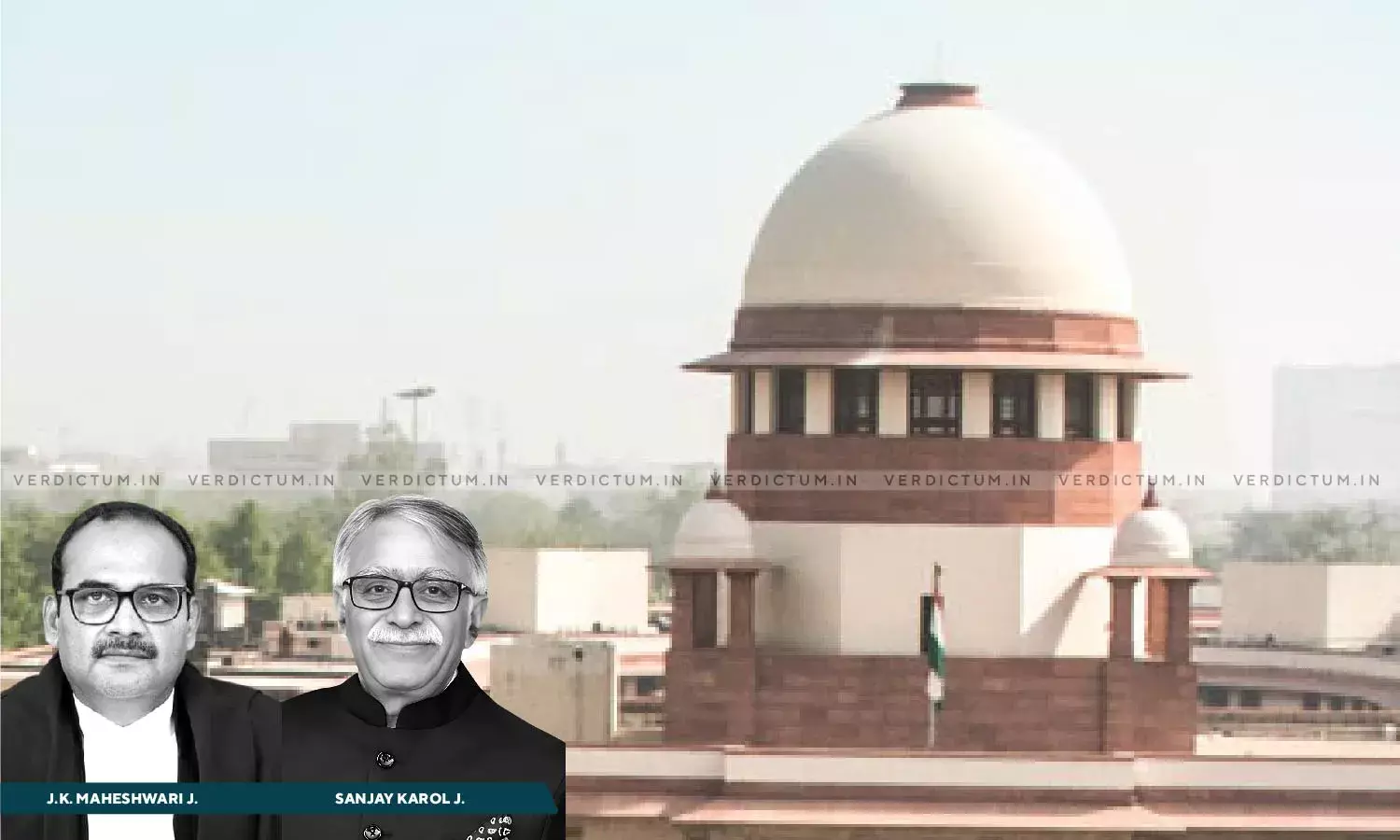HC Should Not Interfere In Writ For Certiorari If Challenge Is On Ground Of Insufficiency/Inadequacy Of Material To Sustain Impugned Finding: SC

The Supreme Court has reiterated that a writ of certiorari should not be invoked on mere asking, and the High Court ought to refrain from acting as an appellate Court unless the facts warrant it.
The Court said that a High Court in a writ for certiorari should not interfere when such challenge is on the ground of insufficiency or adequacy of material to sustain the impugned finding.
The Bench of Justice JK Maheshwari and Justice Sanjay Karol observed that, "the writ of certiorari being a writ of high prerogative, should not be invoked on mere asking. The purpose of a writ of certiorari for a superior Court is not to review or reweigh the evidence to adjudicate unless warranted. The jurisdiction is supervisory and the Court exercising it, ought to refrain to act as an appellate court unless the facts so warrant. It also ought not reappreciate the evidence and substitute its own conclusion interfering with a finding unless perverse. The High Court in a writ for certiorari should not interfere when such challenge is on the ground of insufficiency or adequacy of material to sustain the impugned finding. Assessment of adequacy or sufficiency of evidence in the case at hand, fell within the exclusive jurisdiction of the Scrutiny Committee and reagitation of challenge on such grounds ought not have been entertained by High Court in a routine manner."
Senior Counsel Dhruv Mehta appeared for the appellant, while Senior Counsel Kapil Sibal appeared for the respondents.
In this case, the challenge was against the High Court's decision wherein the High Court had cancelled the caste certificate of Amravati MP Navneet Kaur on grounds of alleged fraudulent procurement.
The Apex Court observed that under the Maharashtra Scheduled Castes, Denotified Tribes (Vimukta Jatis), Nomadic Tribes, Other Backward Classes and Special Backward Category (Regulation of Issuance and Verification of) Caste Certificate Rules, 2012, the adjudication based on the documents falls solely within the domain of Scrutiny Committee. Holding that the High Court cannot interfere with the findings of the Scrutiny Committee especially when due procedure is followed, it was said that, "under Rule 13(2)(a) of 2012 Rules, the adjudication on the basis of the documents falls solely within the domain of Scrutiny Committee based on the inputs received from the Vigilance Cell. The Scrutiny Committee is an expert forum armed with fact finding authority. The High Court ought not to have interfered, especially when Scrutiny Committee had followed the due procedure under Rule 12, 17 and 18 of the 2012 Rules and that there was nothing perverse about a finding of fact."
It was noted that the Scrutiny Committee had heard all the parties in detail, complying with the principles of natural justice, and had duly considered the documents placed before it and after due application of mind on being satisfied, accorded reasons for accepting/validating the caste claim of the Appellant while accepting/rejecting other certain documents.
Accordingly, the validation order passed by the Scrutiny Committee was restored.
Appearances:
Appellant: Senior Counsel Dhruv Mehta
Respondents: Senior Counsel Kapil Sibal
Cause Title: Navneet Kaur Harbhajansing Kundles vs State of Maharashtra and Ors.
Click here to read/download the Judgment

